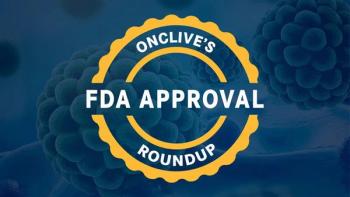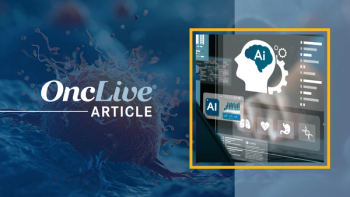
The Use of Biosimilars in HER2+ Breast Cancer
Transcript:
Lee Schwartzberg, MD, FACP: We’ve been using biosimilars for a few years now. The first biosimilars approved in the United States were in the supportive care arena, and particularly growth factors. We’ve been using those in breast cancer to support certain chemotherapy regimens that require growth factor use. So, we were very used to already incorporating biosimilars into the treatment management of breast cancer patients. However, the difference was that we were talking about supportive care. And some physicians have taken a different approach to a supportive care medication as opposed to a therapeutic medication where the outcome is truly potentially lifesaving.
So, some physicians have wanted more information about therapeutic uses of biosimilars. And in breast cancer, the use that we’ve seen now of a biosimilar is in the HER2 [human epidermal growth factor receptor 2]-positive space. That subset of patients where we now have biosimilars for trastuzumab, which was a revolutionary molecule in terms of a biologic that helped people live longer in the metastatic setting and actually cured more people in the early stage setting. The stakes are high for the use of a drug like trastuzumab where it has such critical value in HER2-positive breast cancer.
For trastuzumab there are now 5 available biosimilars that have been approved by the FDA. However, not all of them are on the market at this time, although an increasing number of trastuzumab biosimilars are now being entered into the market. That had to do with operational issues at the manufacturers’ level and lawsuits and other things among the originators. So even though they were approved, they weren’t necessarily available.
When trastuzumab biosimilars became available we started using the first one that was available on the market, although not the first one that was approved by the FDA. That is called Kanjinti, and like all trastuzumab biosimilars, it is called in its generic form as trastuzumab with a 4-letter suffix. This is important because every biosimilar will have a different 4-letter suffix that doesn’t have any meaning, but that’s the identifier.
The reason that’s important is because at the pharmacy level you want to make sure you’re administering the right drug. So trastuzumab as an originator has its name. This would be trastuzumab with a 4-letter suffix. The pharmacists are now very adept at knowing that we’re not giving the same drug, and we’re not switching drugs out. Whatever drug we’ve decided to use, we keep using that same one. And so, there shouldn’t be any confusion. We don’t just say biosimilar trastuzumab; it’s the actual name that we use. And of course we use generic names at the pharmacy level.
I am comfortable, personally, with using any of the biosimilars that are available that the FDA has approved because I believe in the process of approval. I believe that all of the boxes have been checked. And I can feel comfortable that if I take a biosimilar trastuzumab, that it will work the same way as the originator trastuzumab did.
Now, Kanjinti, the biosimilar that I am using, like all the others, has been tested in a clinical trial. For this particular agent it was used with neoadjuvant chemotherapy in HER2-positive breast cancer. And the primary end point of that trial was pathologic complete response rate, which is a well-known surrogate end point that we use for determining long-term benefit for drugs in the neoadjuvant space for HER2-positive.
In addition, Kanjinti was used in the adjuvant setting. So, there was actually another comparison between trastuzumab and Kanjinti in the adjuvant setting to complete the year of trastuzumab therapy that is standard for all patients with HER2-positive disease.
We have good safety data on this biosimilar as well as the other 4 trastuzumab biosimilars that show that the safety is equivalent. And we have data that show the similarity. So, in a clinical trial setting the drug worked within that narrow range that the standard drug would work.
We have comfort from the clinical trial data that we can use the biosimilar as opposed to the originator, in that setting or in other settings, for HER2-positive breast cancer.
Transcript Edited for Clarity




































